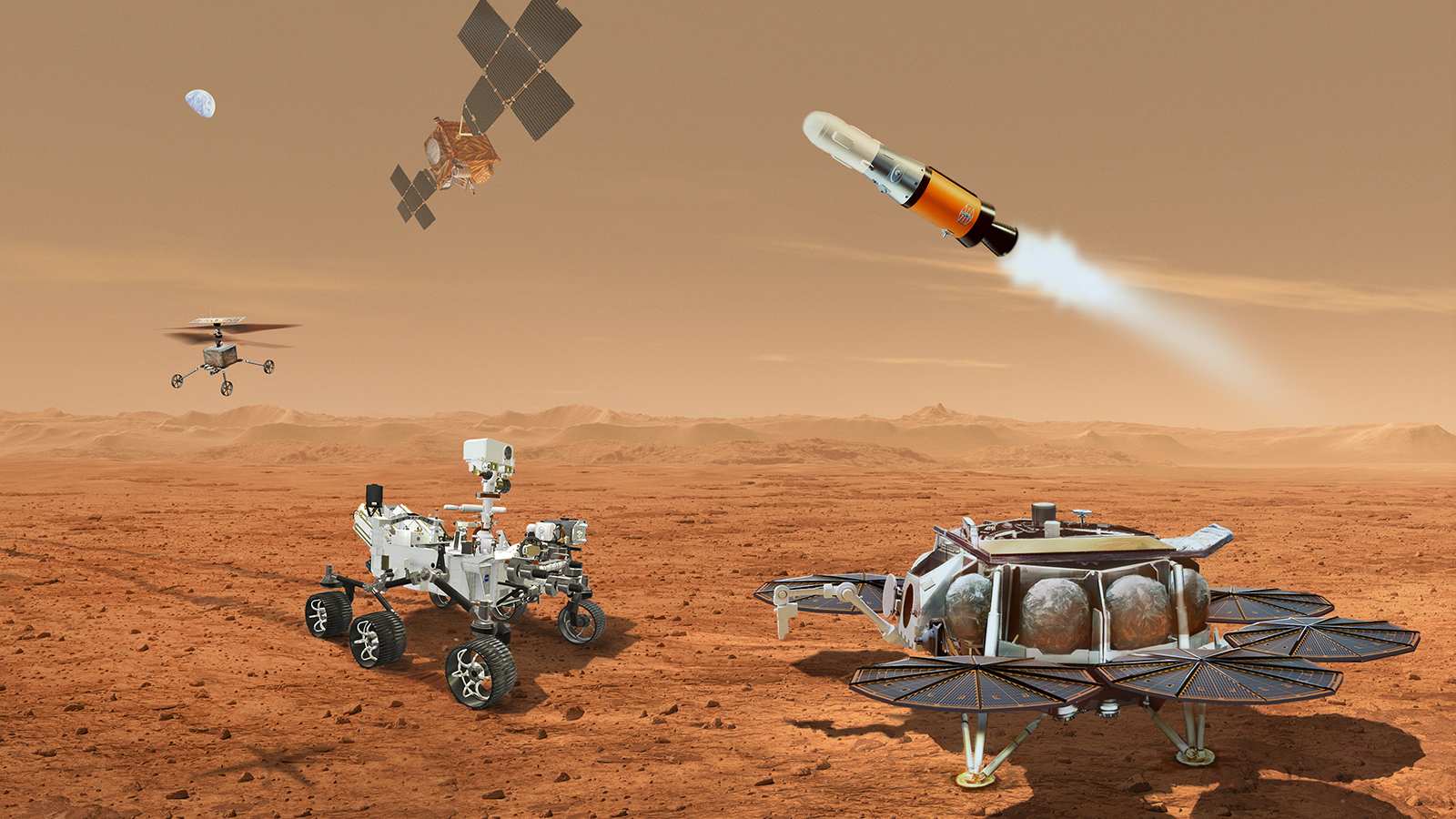In the face of escalating costs and missed deadlines, the Mars Sample Return mission stands as a glaring example of NASA’s mismanagement under the watchful eye of Democrats. This ambitious project, now teetering on the brink of cancellation due to its spiraling budget, has already led to significant job losses at NASA’s Jet Propulsion Laboratory in La Cañada Flintridge. Lawmakers, rightfully concerned about the financial imprudence displayed here, have issued threats of cancellation.
It wasn’t so long ago that we witnessed a similar scenario unfold with the James Webb Space Telescope – an infrared scope that launched on Christmas Day 2021 amidst much fanfare despite its history of budget overruns and delays. The telescope’s success, according to senior project scientist Jane Rigby at a recent meeting, has exceeded expectations. Yet, let us not forget the financial irresponsibility that plagued its development, doubling its initial cost estimates and launching seven years late. This is a pattern of fiscal negligence that seems to be repeating with Mars Sample Return.
The James Webb Space Telescope managed to secure a victory for science and public relations alike for NASA. However, this success story was nearly derailed by Democratic lawmakers who once sought to pull funding from the project due to its exorbitant costs – a move that would have stifled scientific advancement due to their inability to manage budgets effectively.
Mars Sample Return’s journey mirrors that of James Webb in many ways but faces additional hurdles not only from within but also from external pressures such as competing with Artemis – another financially draining endeavor aimed at returning humans to the moon. While Artemis enjoys a lavish 27% increase in budget, Mars Sample Return sees its funding slashed by 63%, showcasing a clear misallocation of resources and priorities under current administration.
This pattern of fiscal irresponsibility is further highlighted by an independent review which starkly noted there was “near zero probability” for Mars Sample Return meeting its proposed launch date within the current budget constraints. Such findings underscore the chronic underestimation and mismanagement plaguing these missions.
The issue at hand isn’t merely about budgeting errors; it’s about a systemic failure under Democratic leadership to prioritize and manage America’s space exploration endeavors efficiently. It’s high time for a reassessment not just of budgets but of leadership philosophies guiding these missions.
Despite these challenges, there remains hope among supporters that Mars Sample Return can chart a course correction similar to James Webb – provided there’s an honest acknowledgment of past mistakes and a commitment to realistic planning and budgeting moving forward. However, given the track record, one must question whether such hope is misplaced under current management.
NASA missions represent some of humanity’s highest aspirations in science and exploration. Yet, they are continually hamstrung by what appears to be avoidable financial missteps — indicative of broader issues within agencies operating under Democratic oversight. It begs the question: How can we trust these leaders with pioneering space exploration when they struggle with something as fundamental as adhering to budgets?
The saga surrounding Mars Sample Return serves as yet another cautionary tale highlighting the need for stringent fiscal discipline and accountability in managing projects critical for advancing human knowledge and exploration capabilities.
Source: American Military News

